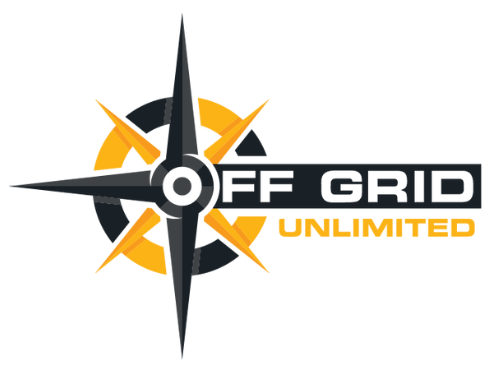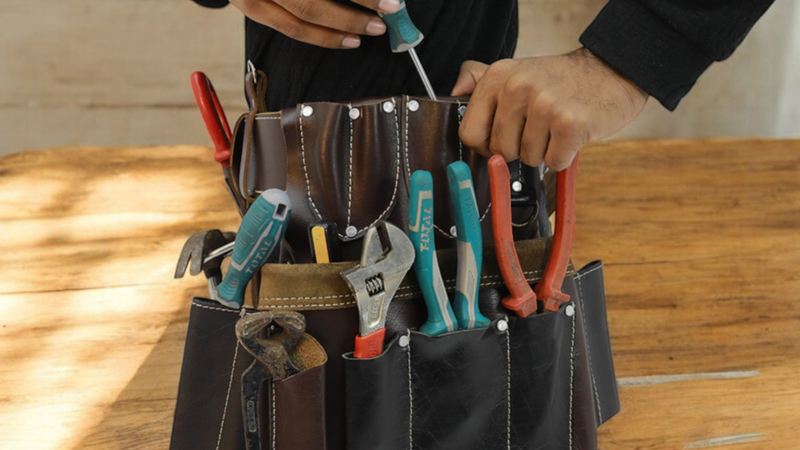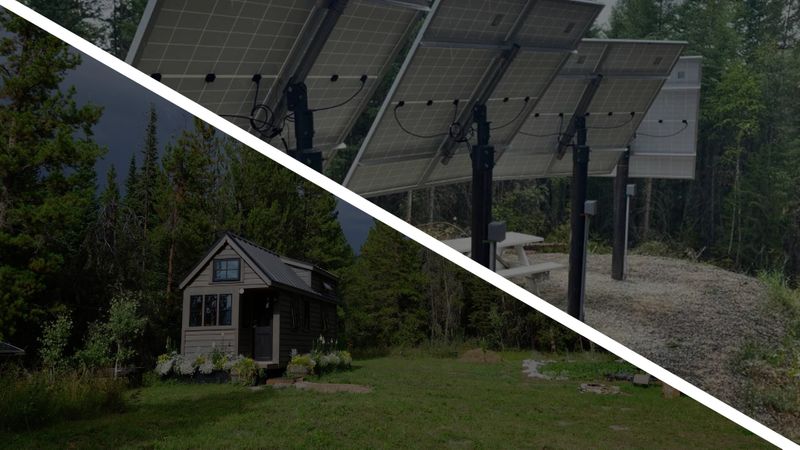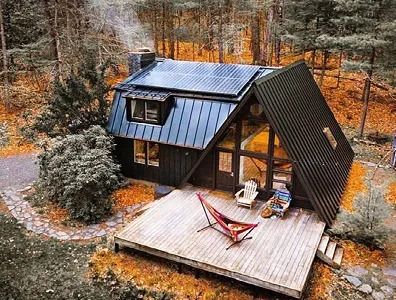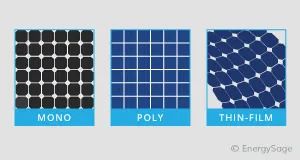Blog
Recent Updates
Signs It's Time to Call a Professional Electrical Contractor
When it comes to your home's electrical system, safety and efficiency are paramount. Certain issues may seem minor, but they can indicate larger, more dangerous problems. Knowing when to call a professional electrical contractor, like our team at Off Grid Unlimited, can protect your property and family. Here are four key signs that you need expert electrician services.
moreWhat Makes Our Electrical Services Different
Living off-grid is a dream for many, but the journey to self-sufficiency can be complex and overwhelming. At Off Grid Unlimited, we understand these challenges because we live and breathe this lifestyle. We are a veteran and first-responder friendly, family-owned business based in Bonners Ferry, Idaho, dedicated to making your off-grid dreams a reality. Our electrical services go beyond a simple installation—we provide comprehensive, expert solutions tailored to the unique demands of living in the North Idaho area.
moreStarting from Scratch
In the past several decades the solar industry has seen rapid expansion in the US, and economic conditions continue to cause it to evolve. Choosing how to begin your first adventure in solar power can be overwhelming. Most of the people I have spoken to over the years have a basic understanding that they need solar panels, batteries, and perhaps a few accessories to run it all. The truth is every situation is different. No two properties or people are the same and for this simple reason each system design has unique requirements.
The first thing I ask new off grid clients is what their expectation is. It is important to be realistic about your goals. Any system should be designed around your needs, but there can be limits. For most people the transition to living off the grid is life altering. Doing simple things like learning to cook without a microwave, or use electric heat, or cooking without an electric range will be an insurmountable obstacle for some. Just remember before you explore your options that there are solutions to most problems you will encounter if you are willing to adapt and be flexible.
The environment will also dictate your design. Northern latitudes require a lower vertical angle for your panels to maximize collection of solar energy. Winter can be exceptionally harsh as the sun vanishes behind tree tops that only months ago did not block the sun. The length of each season, most notably the winter months, will affect how you manage your solar system (and all off-grid systems.) Your dream property will also have its own geography that impacts where you can build, and thus where you can acquire south-facing exposure for sun.
morePros and Cons of Living Off Grid in Remote Idaho
Gorgeous nature, peace and quiet, and a smaller population are just a few of my favorite things about living off-grid in remote Idaho. It was once believed by many that having a fully solar-powered off-grid system up here was not possible. That was true 10-20 years ago when technology lacked the innovation of today's choices. Luckily, with today's technology, we can build a fully remote off-grid system that is powered by solar.
With that being said, there can be limitations and concessions that will need to be made. I want to take a moment to explain some of the pros and cons of living off-grid in remote Idaho.
Pros:
1. Land that was once uninhabitable and undesirable is now actually a possibility, especially with the accessibility of Starlink Internet. As a result, more and more people are buying land in some of the most beautiful parts of God's country.
2. For those of you still living in the city but who THINK like an 'off-grider,' you might feel out of place or misunderstood. People who love the convenience of the city and don't mind the crowded streets and spaces may look at you cross-eyed as you express your desire to live 30 minutes from town without connectivity to the power grid. However, when you move to remote Idaho, you are going to find people who think like you, understand your desire for solitude, and respect your privacy!
moreChaos - My Life's Theme
So here is the update I promised our readers last night. Apologies for the delay, I have been making repairs to a spring water catchment system in the mountains.
To all that wonder, yes we are evolving yet again. There are a few reasons that I will get into in time. Our goal is to take greater care of our clients.
Most of our readers have questions about what we do, but occasionally you ask us why. It's actually not a short story, so for the first time I will tell a bit of our story.
Back at the end of 2017 I retired from the Army. As with most veterans, the transition was overwhelming at times. It takes a considerable amount of effort to ply through the layers of bureaucracy until we were financially stable. Most people don't hear the stories about our first years out of service, they hear the glory day stories from when we were on active duty.
Longest part of the story short: In order to establish my own off grid homestead I needed to find employment to fill the gaps until my retirement was achieved (the entire process took three years). At that time, my family and I were living in a rental property out at Cross port (adjacent to a railroad). It was a trying time as we struggled to make ends meet.
moreGetting Ready for Winter
Who out there is ready for winter?!
I can hear the groans and frustrated sighs already.
Winter in a remote setting, miles from civilization, can be absolutely overwhelming. I personally enjoy the serenity and complete silence when winter blankets the world in snow. The cold is nature's way of sorting life. The struggle makes the remaining life stronger in the Spring.
Winter also forces us to assess our weaknesses. It reminds us to prepare each year or face the consequences. Winter is unforgiving. Winter gives us all a chance to reset our lives around the demands of the wild. If you live off grid you soon adapt or suffer.
Step 1. Make sure you have shelter. Although there are parts of this world where you can easily exist in the elements all year, it only takes one bad storm to kick us in the teeth. There is a reason the meteorologists record and remind us about 50 and 100 and 1,000 year storms. Building even a primitive shelter can mean everything. If you have a family to shelter it IS everything.
Insulate your shelter. The old timers used anything they could shove into the wall cracks. Newspapers, old rags, straw, hay, leaves. Waterproof your shelter. Cedar shakes or a natural alternative can mean a great deal of protection. Being cold is bad enough. Being wet and cold will kill you quickly.
moreThe Importance of Water
The day has arrived. You decide it's time to move away from the busy home town or city you have always lived in. Now the work begins as you search for the perfect property.
The SINGLE most under calculated aspect of that search is water. Naturally, we all read or discuss the prospects with friends/acquaintances to help guide us in the process. The advice you will receive is as endless as the seas. Sorting through the experiences, opinions, and myths can send you in the wrong direction many times before you even have a chance to escape into the peace of the wilderness.
I have subsisted for varying periods of time in some fairly amazing environments. Knowing the correct way to develop a new property for water is sometimes very overwhelming if you have not done it. Let's start off with some basic things I use myself, and each thing on my list has saved me frustration as I got older and learned what did and did not work.
1. Not every stream, creek, spring is eternal. When you purchase a property make sure to find out if the water source lasts all year. The changing of the seasons will cause the water on the surface and in the ground to rise and fall. Sometimes this change is dramatic and will very much do its best to deny you easy access when you need it most. In many areas you can search for well records from the surrounding well logs. You will want to pay close attention to the standing water level in the hole, flow rate, and especially the driller's record of the layers of earth that were encountered as they drilled deeper.
moreAn update from Rick
It has been what seems like an eternity since I wrote an article for all of you. God has blessed our team at Off Grid Unlimited. We have accomplished some amazing things in a single year. I am extremely proud of my family and my team (same thing) for how much they have grown and learned as we strive to keep up with the events around us.
So much has happened. I will struggle to describe it all now that we are in winter and I can sit down and write. First let's talk about the family.
RAY: Just a little over a year ago Ray Flower joined us. Ray worked so hard to keep up with the tasks he nearly broke himself in half. I cannot have a better partner in this endeavor or a better friend. For those of you that haven't met Ray at some point, he is a cross between a retired farmer (despite his age), a master mechanic, a welder/fabricator, a carpenter, a solar installer, and quickly became our foreman. I hope all of you get to meet him at some point in the future.
TESS: Our office is not an easy thing to manage. Strangely to Tess nothing seems difficult. I am fairly certain she will someday own her own fortune 500 company. I hope she does and still keeps us from losing our way. I would say I feel slightly guilty for bringing her into the business and away from her other options in the county, but I don't. My only wish for her is that she stays strong and leans into her faith in the coming year.
moreA New Era for Off Grid Unlimited
Our effort to bring Solar more effectively to your home just got far easier. Thanks to a partnership with our friends over at Patriot Systems, we now offer pre-packaged all in one solar systems that literally take a fraction of the time to setup. One cost, quick installation, and if you buy the trailer with the package it's even mobile. Plus now with the 30% Federal Rebate the cost savings is even better than last year. Call us today and order your own full scale Solar solution.
Price is variable based upon selected options.
moreThe Turbulent Twenty Two
By Rick - August 25th, 2022
It has been a considerable time since I spoke at length on the blog. Things have been very busy here at Off Grid Unlimited (OGU). Our reach and the number of people we could help exploded as early as January. Our phones were overwhelmed for a considerable time. Then supplies became very thin throughout the Solar Industry. One of the most significant battery suppliers in the United States nearly went bankrupt. Then an innovative manufacturer of solar panels went under. Then a major manufacturer of inverters (in our opinion the best in 25 years) went dark and lost all ability to supply the markets.
Enter more pandemic related politics, inflation, migration into our area as instability predominates around us and all around chaos.
Then at the height of the building season when we were literally succeeding at triple the numbers over prior year we came under assault by competitors. The old business adage that you can tell you're succeeding by how quickly you're being attacked by your competitors was proven true. The more people we help, the faster the attacks accelerated. Our signs were being ripped down throughout town (by a short list of individuals), our business listings were sabotaged online (an active effort was undertaken to claim we didn't exist). This all happened in August, during several ongoing projects across the area.
moreWhat do we do in the Winter?...
So you moved to the mountains, just get settled in, and it starts to snow. Then you notice something isn't right. The investment you made last summer on a solar system doesn't seem to be paying off and there you are alone and cold in the dark.
Oddly enough our business this year picked up in the winter months. We have four wheel drive service trucks, chains, emergency gear, and we still travel out to the remote locations. Case in point, this photo was the start of a decent storm in early December 2021 at high elevation. The family had been out of reliable power for a bit (over 2 months), and Christmas was approaching. We scoured the supply chain for the right hardware. We fueled the truck, loaded the new system, and up the mountain we went!
After just under two hours driving up the mountain we met the property owner and began evaluating the system, pulling the old hardware, and installing a new inverter. The old inverter shown below had eventually crashed from worn out relays (a thing this design is known for).
The new inverter, once installed with the correct settings on the Magnum Advanced Remote (ME-ARC50) allowed us to not only get them up and running, we we able to limit the bridge between the generator and the new inverter to solve what created the bad relays to start with. The new inverter should last them for many years to come.
moreOff Grid Realities
Living Off Grid may seem easy if you've watched Discovery Channel. It isn't. It never hurts to ask someone who lives off grid first if you lean toward the lifestyle.
The smallest things can have huge consequences. You can build a solar system, build a cabin, cut firewood, create a garden, and the other myriad things that typically happen and in an instant it can be gone. Floods and Fire have destroyed many off grid dreams. I chose the picture above because there has been a constant focus on the fires raging across the west. Floods are just as catastrophic. I grew up in flood country. I also watched many of my friends and neighbors lose everything they had from flood waters. Fire and water - keep that in your mind when you look at a prospective property.
You've all also heard me preach consistently about the things to avoid while living on a solar system. Microwaves top that list. Electric hot water tanks are also on the same list. You have to adapt to living off grid. If you are clinging to all the conveniences of modern civilization you are going to get frustrated. In my own case the transition was easier because I grew up without running water and power. That doesn't mean I myself haven't been frustrated. I have, and there will surely be moments you will feel the weight of the transition on your shoulders.
moreIMPORTANT UPDATE FROM OGU
So many of you might wonder why things have been chaos here lately: It's simple actually.
Most of you know that we started in the same building where I managed the old solar store. OGU is in no way affiliated with that business. Please do not go to them and think they will direct you to us. They will not (but they will try to sell you solar).
Thanks to the relationships we've formed in the community we've decided to join forces with some great partners on a new location along Highway 2. Our new entity will be multi-family and friends joining forces to bring you everything you need to homestead. Soon we will have a great location just outside of town (Bonners Ferry) and closer to the areas most homesteaders here are building their Off Grid Dream.
Thank you greatly to all who have supported us over the past year. We really do appreciate it - all of you are part of our Boundary County family and we are here to help you any and every way we can.
In the meantime - Please call us before you visit.
Or you can simply leave us a message on the contact form - we see those in our phones/computers very quickly. Remember - most off grid installation takes place where there is no (zero) bars of cell signal.
moreOrchards: A great long term investment.
In my various attempts through the years to establish a homestead one thing always became a consistent part of my plan: Fruit and nut trees.
Building an orchard takes time and patience. In a world where everyone wants things instantly, most cannot even conceive of the idea you would plant a tree and wait for years (YEARS) to benefit from the food it provides. As with anything in this world getting a result sooner (buying larger trees to plant) comes at a cost. Instead of spending hundreds of dollars on your trees you may instead want to buy solar power (I couldn't help it.)
Those homesteading rock stars that pull it off are like real life super heroes to some of us. You can't help but stare in awe as you consider that they literally have a renewable source of bulk food just waiting for them each and every year. Bags and barrels and buckets of apples, pears, plums, etc. that make life great when you need to keep the pantry and root cellar stocked.
The most valuable thing I can tell you is this: Patience and a willingness to listen to those who have succeeded will yield success.
Oh, and random internet videos are almost always ALWAYS wrong and lead to utter failure.
moreTrees vs Solar can be Trees = Solar
If you live off grid, or have ever considered it, almost immediately your mind wanders off to images of a vast wilderness waiting to become your home. The dream for many consists of a secluded property on the edge of an immense forest or nestled along a snow-capped mountain range. And why not? With the wilderness comes adventure. Every day is different. If you can last one week, then a month, and push on until the first year is over, you eventually become one with the peace and serenity and freedom it provides.
Then at some point you may have children, or eventually maybe grandchildren. Your homestead grows into a working farm and you need light to work past sunset.
You want to grow a garden. There is virtually no place on your property with enough sun to do so.
The call of electricity and the convenience of being able to use power tools grows into a heightened pitch in your head. You tire of tripping on furniture or various things in the night. You now think you want to try out solar power, but you are surrounded by trees. You have fantastic never ending trees that give you heat (firewood) and protection from the wind. They provide shelter to the wild game that you hunt to survive. And so the dilemma begins.
moreHeating your Homestead
So now that winter is winding down across the region I decided to take a moment and talk about heat. It may seem to make less sense as we head into Spring but I wanted to drive one point home: Planning to heat your homestead and enjoy a comfortable winter off grid can in many cases cost less if you purchase a heat system AFTER winter. For three periods of my life I have lived in a wide range of locations in one of the most unforgiving cold regions in the northern hemisphere: Alaska. There is a great deal of conventional wisdom we can learn from the Alaskan homesteader. For purposes of my planning for heat management I like to use Fairbanks and the surrounding area as a prime example of how to plan for winter the right way. With temperatures sustained well below freezing and winters that last for most of the year, any heat system and building technique used for that environment is sure to save those in the lower latitudes a great deal of discomfort.
Wood heat takes time. It consumes it. The benefit is physical effort and exercise at a cost of time. Planning for wood heat is a cyclical event and any homesteader living in a forested area generally cuts, dries, and burns wood as part of their annual routine. What if I could tell you I could easily save half of that time so you could dedicated it elsewhere? It is easily done in 80% of the homesteads I've visited.
moreBatteries: Building the Bank
So you chose a battery type. Hopefully after discussion and research. Now what?
Wiring a battery bank is not as difficult as it sounds, but you should be cautious and take your time if you have never worked around electricity. Please wear protective equipment (gloves, eye protection) and avoid dropping anything across the terminals that would create an arc (electrical discharge between opposite posts.)
In this article I am going to simply provide a variety of diagrams with some basic detail to point you in the right direction. A picture is worth a thousand words.
So let's look at amp-hours (AH), and as you can see in the diagram above there are four 12 volt batteries in a row. Each of the + (positive) terminals on those batteries is connected and eventually at the end of that string a single positive red line indicates the cable that carries positive current up to the solar hardware - namely your inverter. The same is true with the - (negative) terminals. When you have like terminals bridged as shown the amp hour rating for each battery is additive. That means if each battery is rated at 100 Amp Hours the entire bank produces 400 AH. This is a good example of a simple parallel battery bank at 12 volts. On this system you would need a 12V inverter to convert the output into alternating current if you plan to run a house on AC (or any structure like a garage).
moreBatteries: The Basics
Knowing what battery you should integrate with your solar design can make or break a solar system. Too many times a new off-grid client will inherit an older system that lacked forethought or was designed based on a youtube video. That is not to say there aren't great people out there willing to help you along, just remember that every solar system is a little different. There are questions you need to ask before you spend the $$$ for a battery style that might advertise great results, but not work in your system due to something as simple as the temperature your battery bank will be exposed to. Batteries can easily become the largest expense for a new system. This isn't always necessary.
On the market today there are a much wider variety of battery options than there were even ten years ago. Be wary of batteries advertised with extremely long lifespans, as there is nearly always more to the story if you read the maintenance requirements. Let's dig into a few simple examples.
Off-grid systems in an environment that will be cold (under 50-55 degrees) on a constant basis can be a challenge. In most cases to design a system under those conditions it actually makes more sense NOT to go with Lithium batteries. Lithium batteries have higher energy capacities than many other battery chemistries, and if you can maintain a constant temperature that allows them to operate efficiently they can be the best choice for an off-grid design. However, if you are building your first solar system on your own, I recommend that you instead start off with absorbed glass mat (AGM) batteries. Most lithium batteries will not accept a charge below freezing. Imagine a scenario where you have an emergency and have to leave your cabin, to return a week later to your homestead with a lithium bank below the threshold.
moreSolar Panels: Types and how they work
So you decide you want solar power. The first thing image most people have in their mind is of the line of solar panels to build their system foundation upon. Most of the people I talk to understand they need a solar panel, but not necessarily the differences in panel types. So let's dive into some basic information to get you started.
There are three basic types you should concern yourself with. Monocrystalline, Polycrystalline, and Thin-film. In most applications the better choice is going to be monocrystalline (Mono to installers). Mono panels are more expensive but their advantages are generally worth the cost you will pay. Polycrystalline (Poly) Panels are less expensive, but also less efficient. Both Mono and Poly panels are made of thin layers of silicon. The biggest difference, and the thing that makes Mono more efficient, is that Monocrystalline Panels are made of a single pure crystal of silicon. Poly panels are made of fragments that have been melted together and fused into a single wafer.
Thin film panels are lighter, have more aesthetic applications, but are the least efficient of the three. Unlike Mono and Poly panels they are made from a variety of materials. The bulk of them are predominately made of Cadmium Telluride (CdTe). In some cases they are made from Amorphous Silicon (a-Si).
more